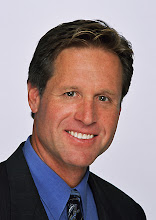If you're mad at the airline you're flying, don't read this, because it will upset you more.
This blog is about the pleasant experience I'm having today because of technology, frequent flier status, and some very nice people.
I'm flying Continental out of Orange County (John Wayne Airport) to Houston and was upgraded to first automatically by their system because I'm a frequent flier with them. Very nice. Since I just got off an airplane back and forth from Wisconsin on a very crowded plane, this will be a nice change.
I'm waiting in American Airlines Admiral Club because they were kind enough to send me a free visit because I am a frequent flier with them also. Waiting here is a small surprise because the invitation expired 4 days ago, and I wasn't sure if they would accept it. American Airlines can be a bit rigid in their rules. It's not so much the
frontline staff, it's a management team that sometimes forgets their in the customer service business.
I got a big welcome at the front desk and a big smile. Lorraine Gonzales-Gallagher then took the opportunity to ask me about my flights, my general traveling, and solicited me to join the club in a very pleasant and professional way. This is the behavior you want your frontline staff to exhibit.
I had planned to write this blog before I took the elevator up to the club. I'm very pleased to be writing this version of the incident: the incident of the very happy customer. Made even happier by the attentive service of Michelle McAndrew who was handling the refreshment bar and the substituting on the front desk also.
Speaking of frontline people, I need to thank the baggage handlers in Greenbay Wisconsin for not shipping my bag to Grand Rapids (GRR). You see, even though I arrived at John Wayne early for my flight to Greenbay, they had boarded the plane prior to the scheduled boarding time. This means that the new policy (a bad policy I believe) set by Arion Saatzoi, AA General Manager at the airport, where no wheelie bags are allowed after 130 passengers have boarded, are allowed on. When I went to board, they wanted my bag, I hate checking bags, and pack light just so I don't have to check bags. Scott Love, Customer Service Manager, who was handling check in, said the luggage bins were full. When I boarded, without my bag, it was easy to see the luggage bins were wide open. So I went back out to get my bag back. This is when I heard about the new policy, which took longer to explain than simply saying 'the bins were full'. What I didn't know at the time, was the handwriting on the bag check ticket showed destination GRR (is was really GBB, but the B's looked like R's). Anyway, when I landed in Green Bay, thanks to an extra effort by the bag handler to take an extra look and check the passenger manifest, they didn't put my bag on the plane going back out because it looked to be in the wrong place. This also means the guys in Chicago did some extra work also to make sure the bag was on my flight to Green Bay.
The point is the front line people always carry the brunt of stupid decisions by management, and yet they do it with a smile and courtesy even for the millionth passenger they've seen that day. To those on the frontline, thank you. The work you do is very much appreciated
When you're traveling lots of little things make a big difference.



